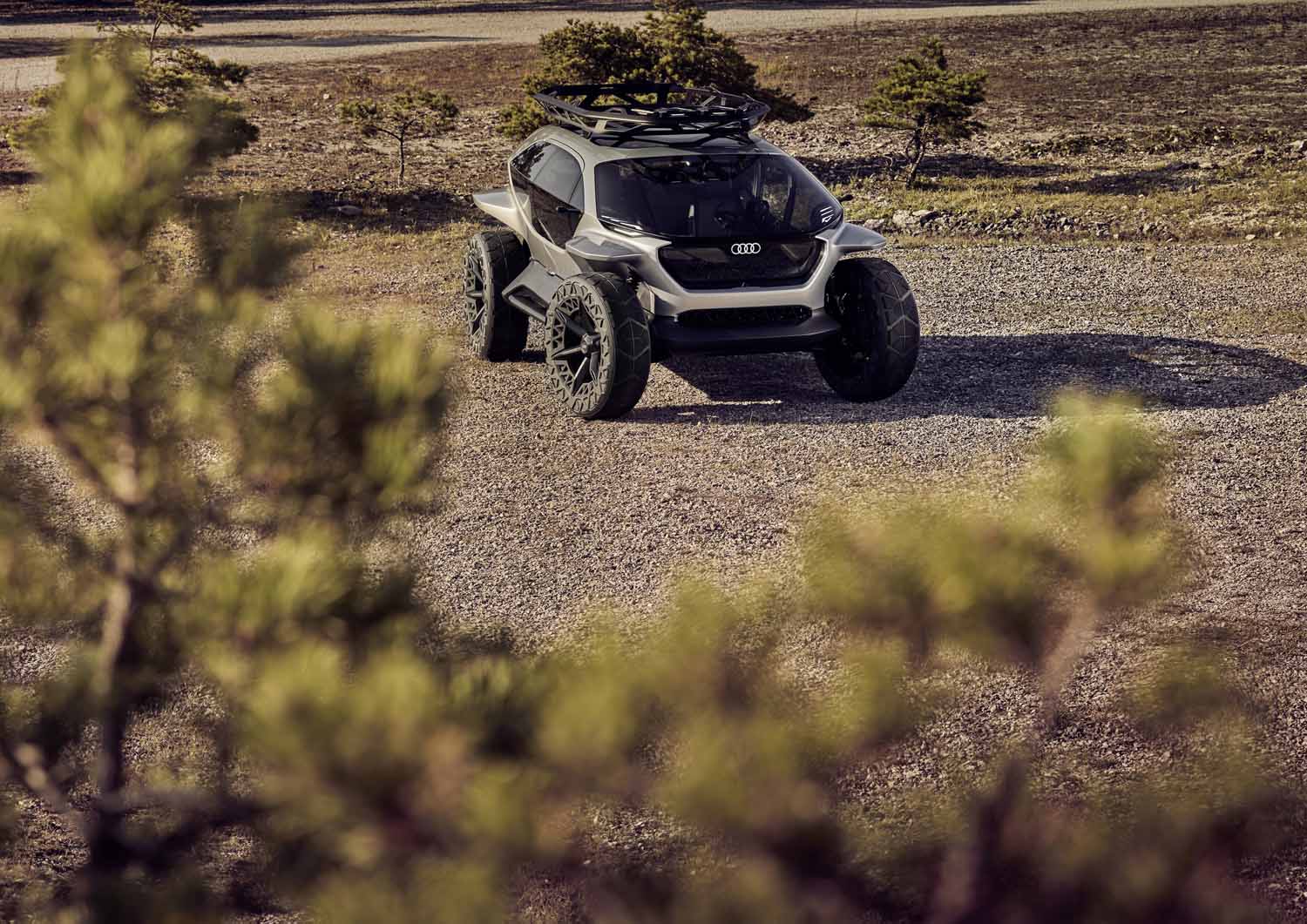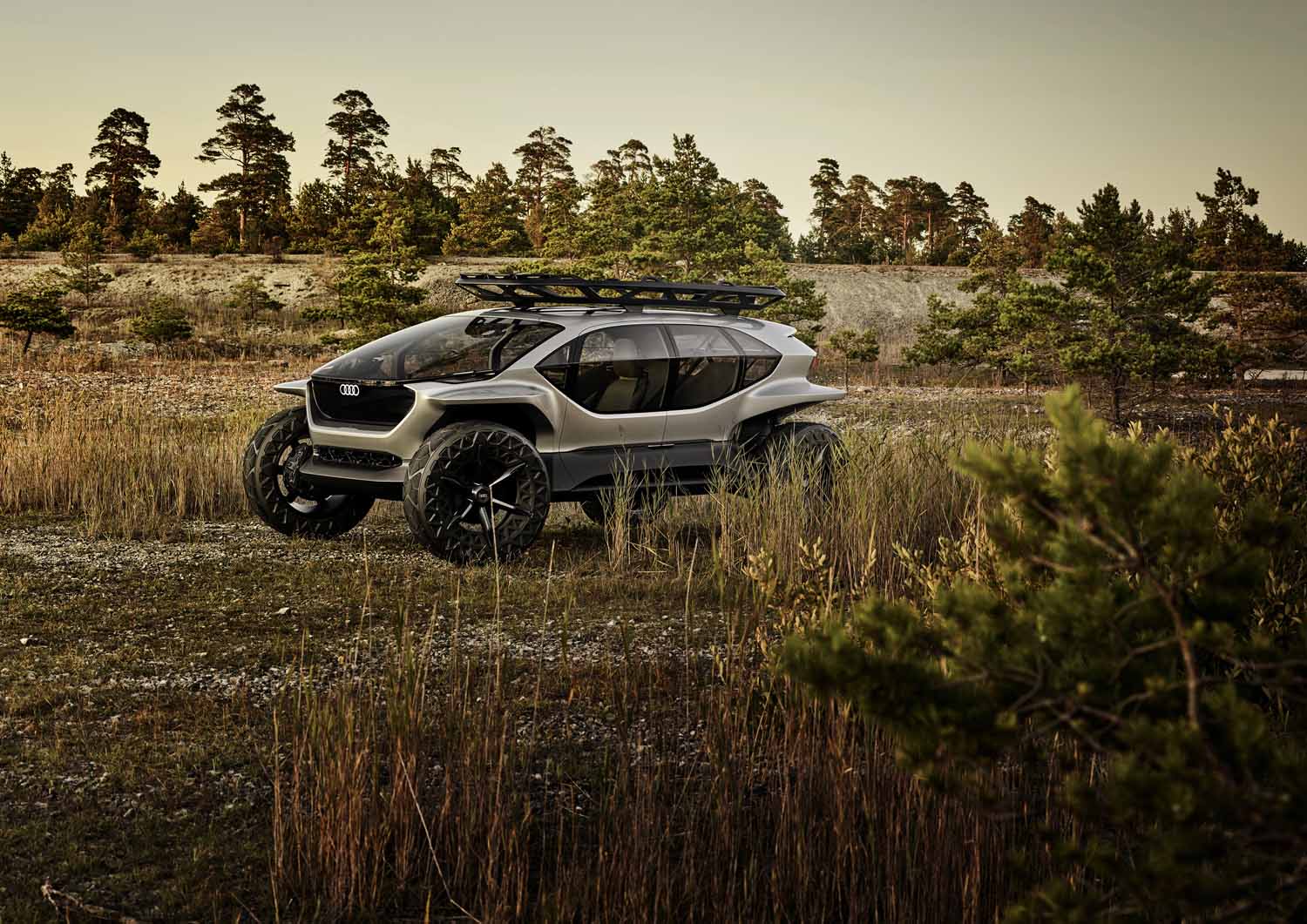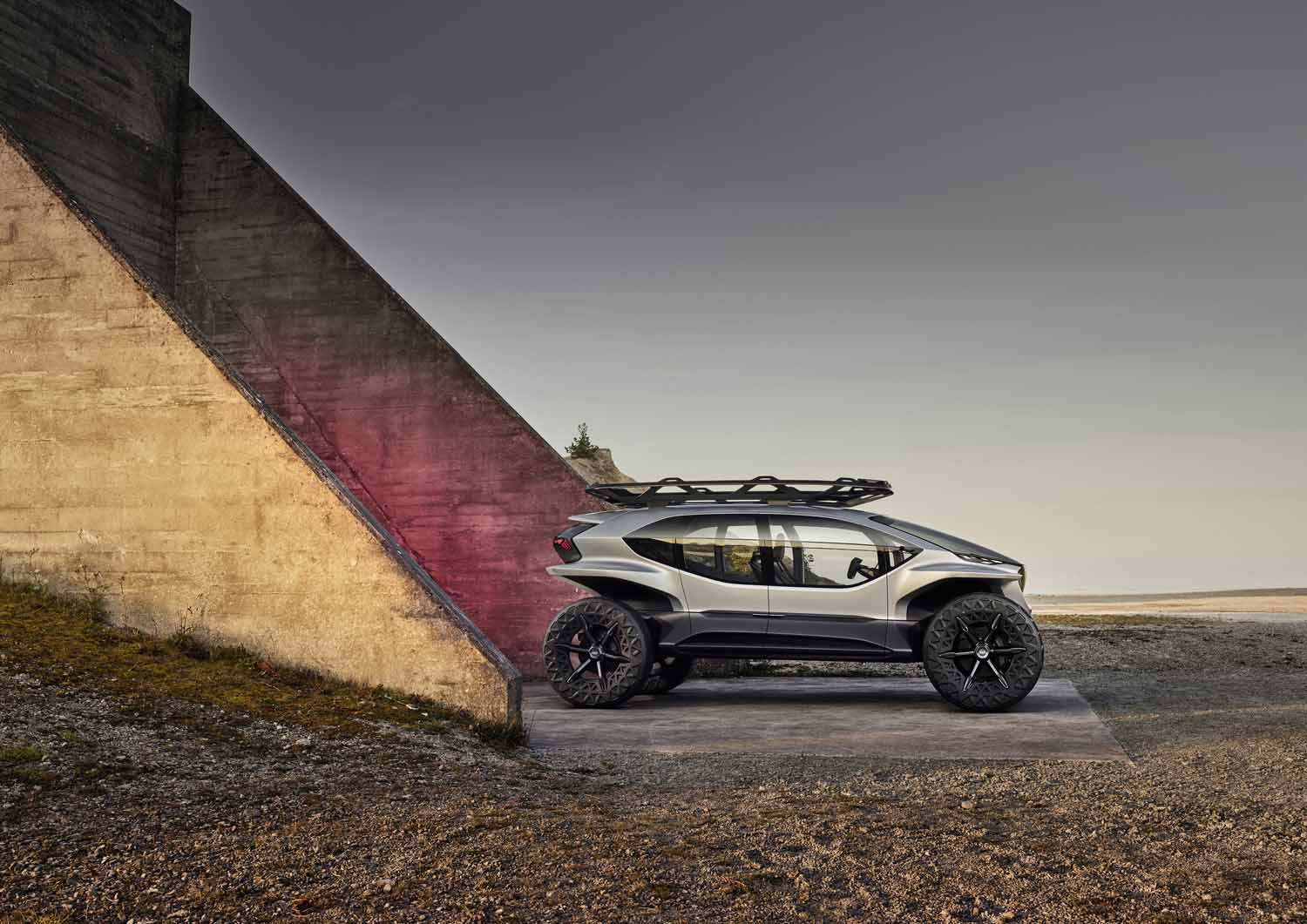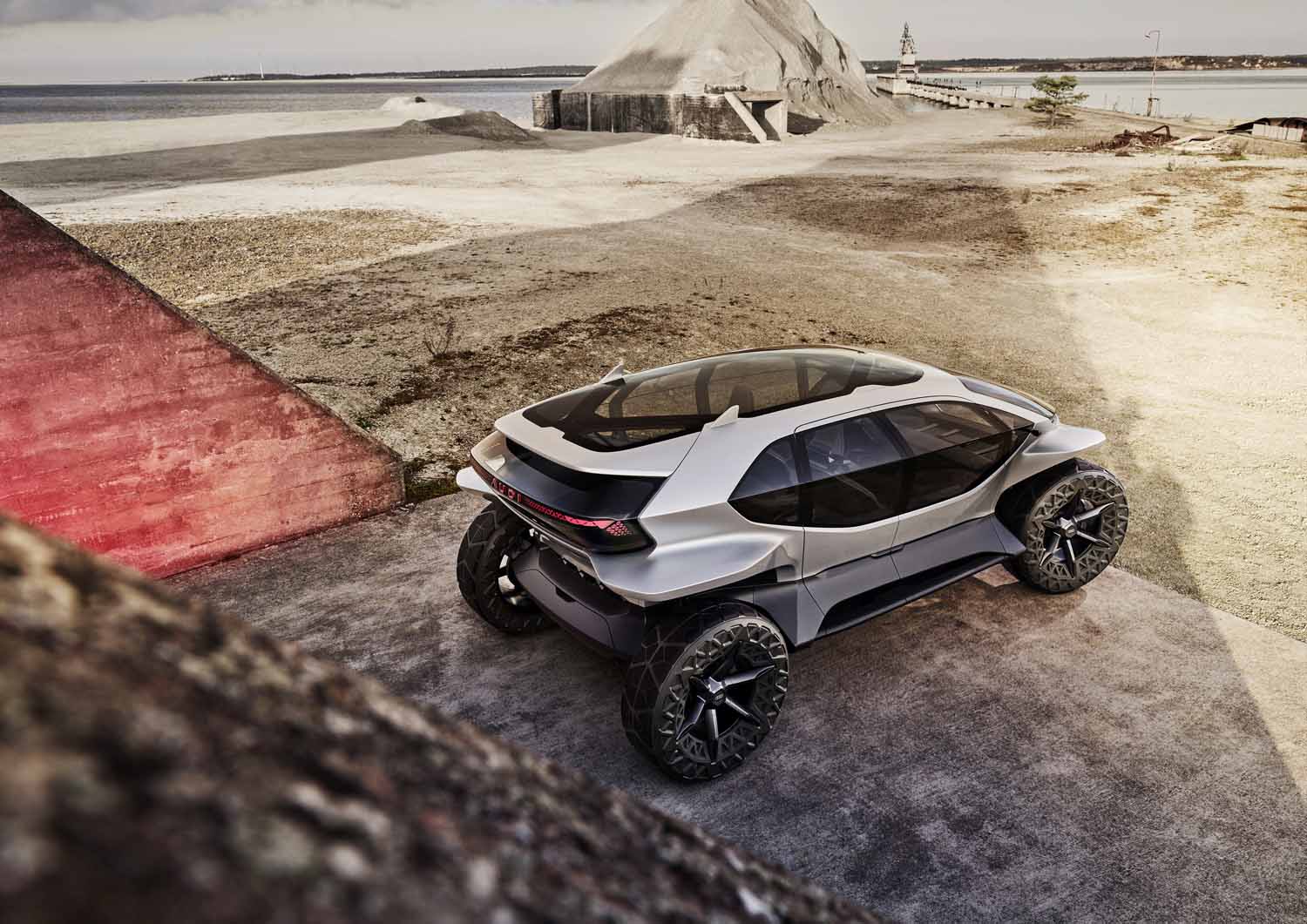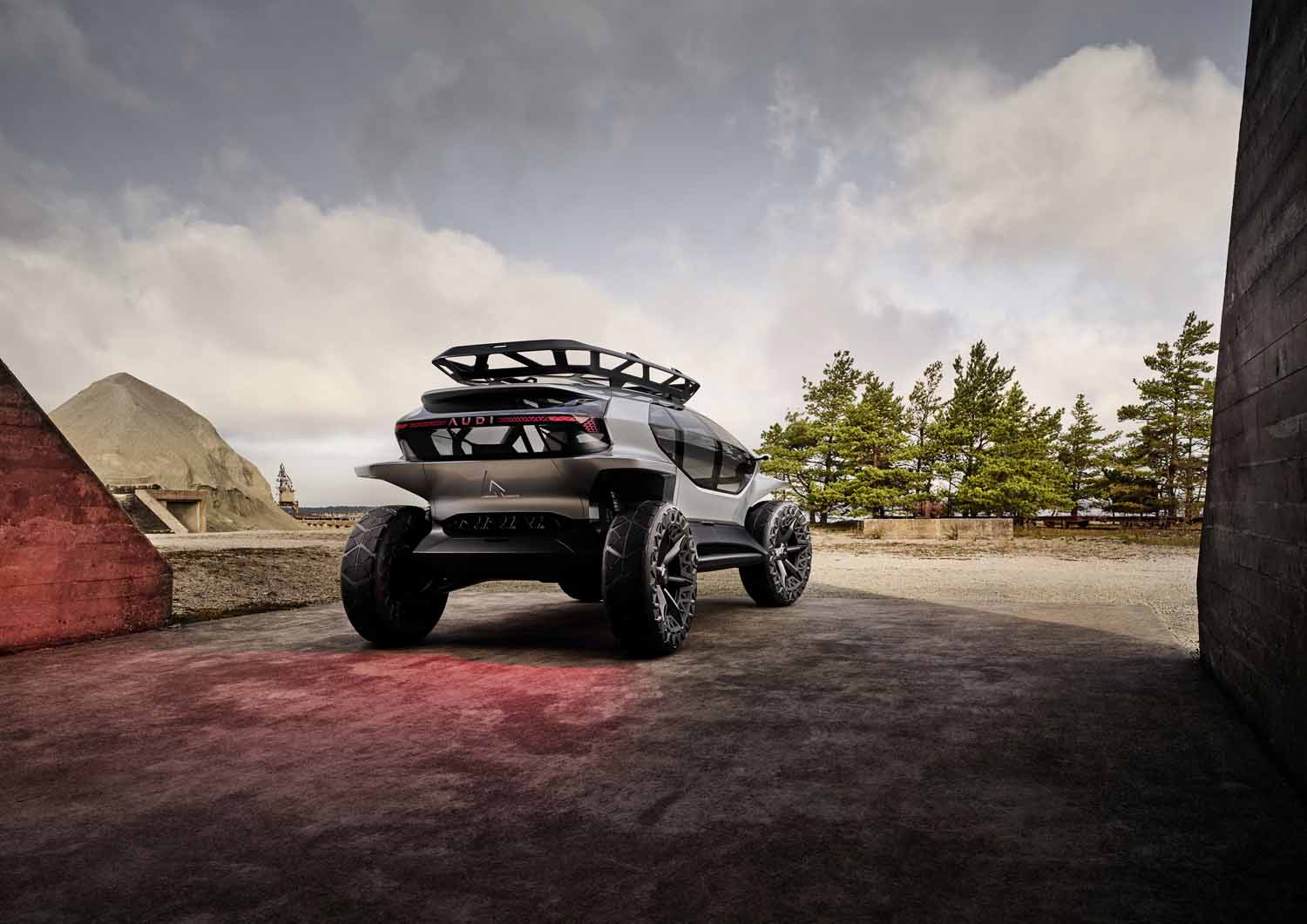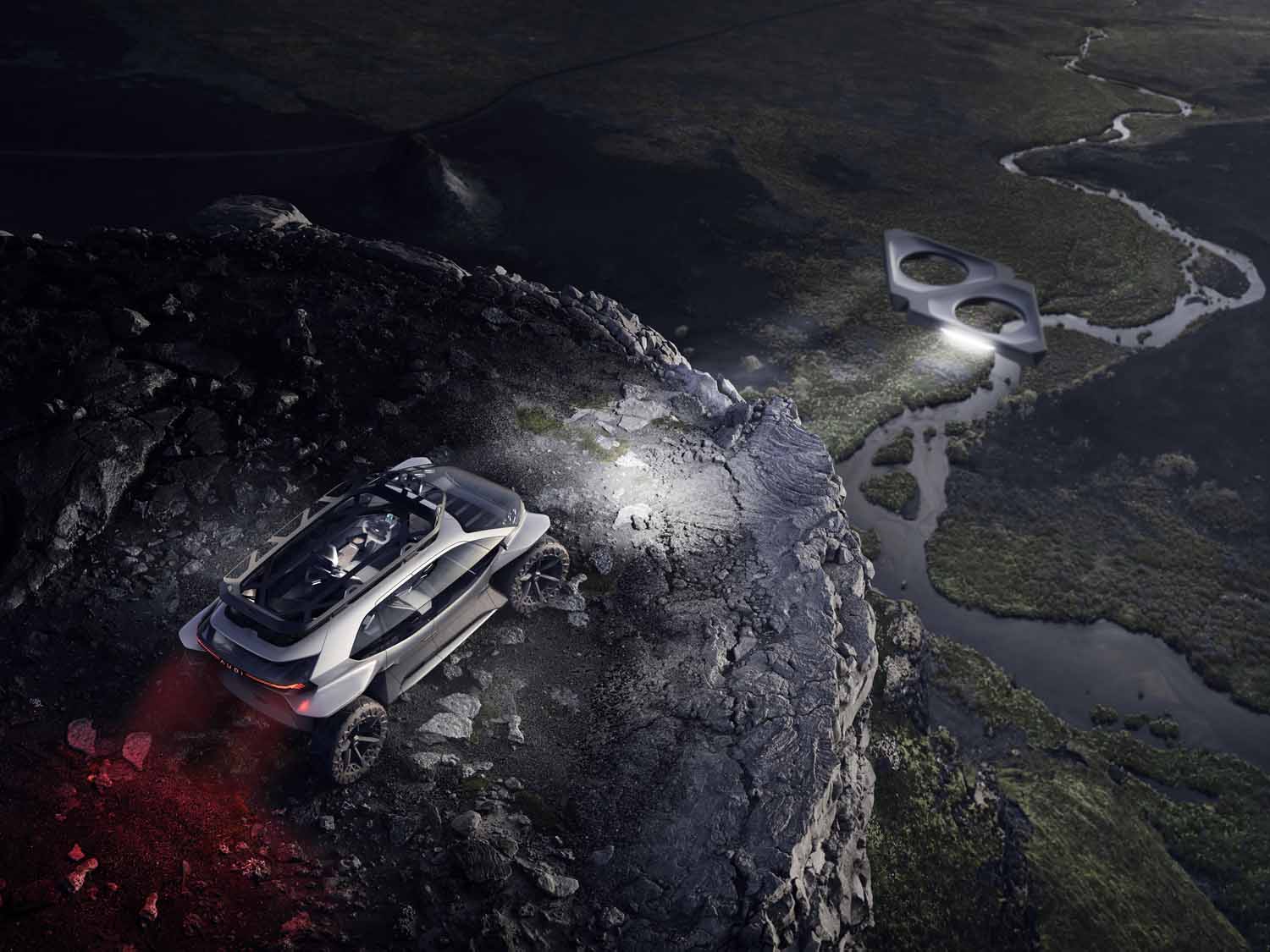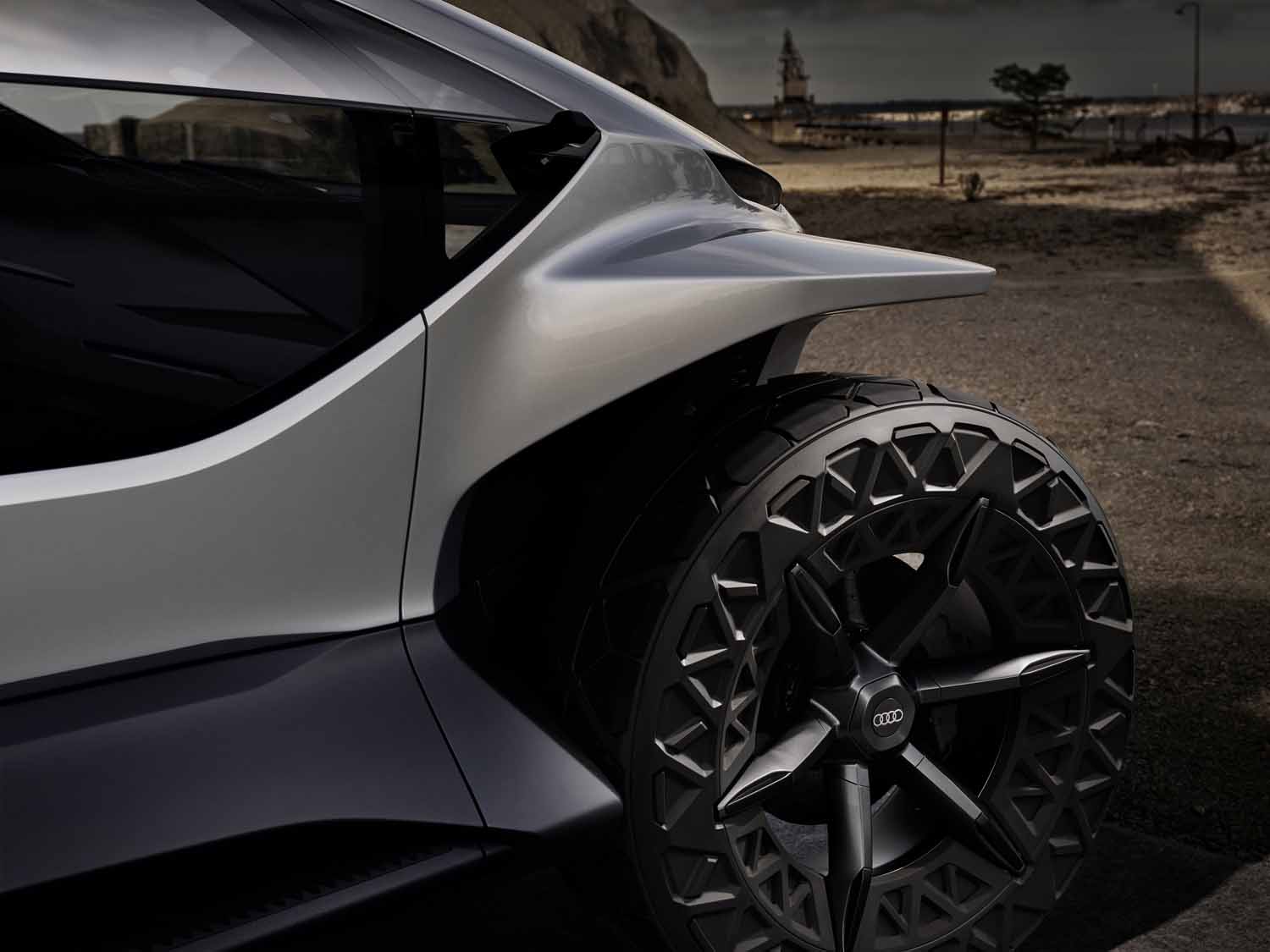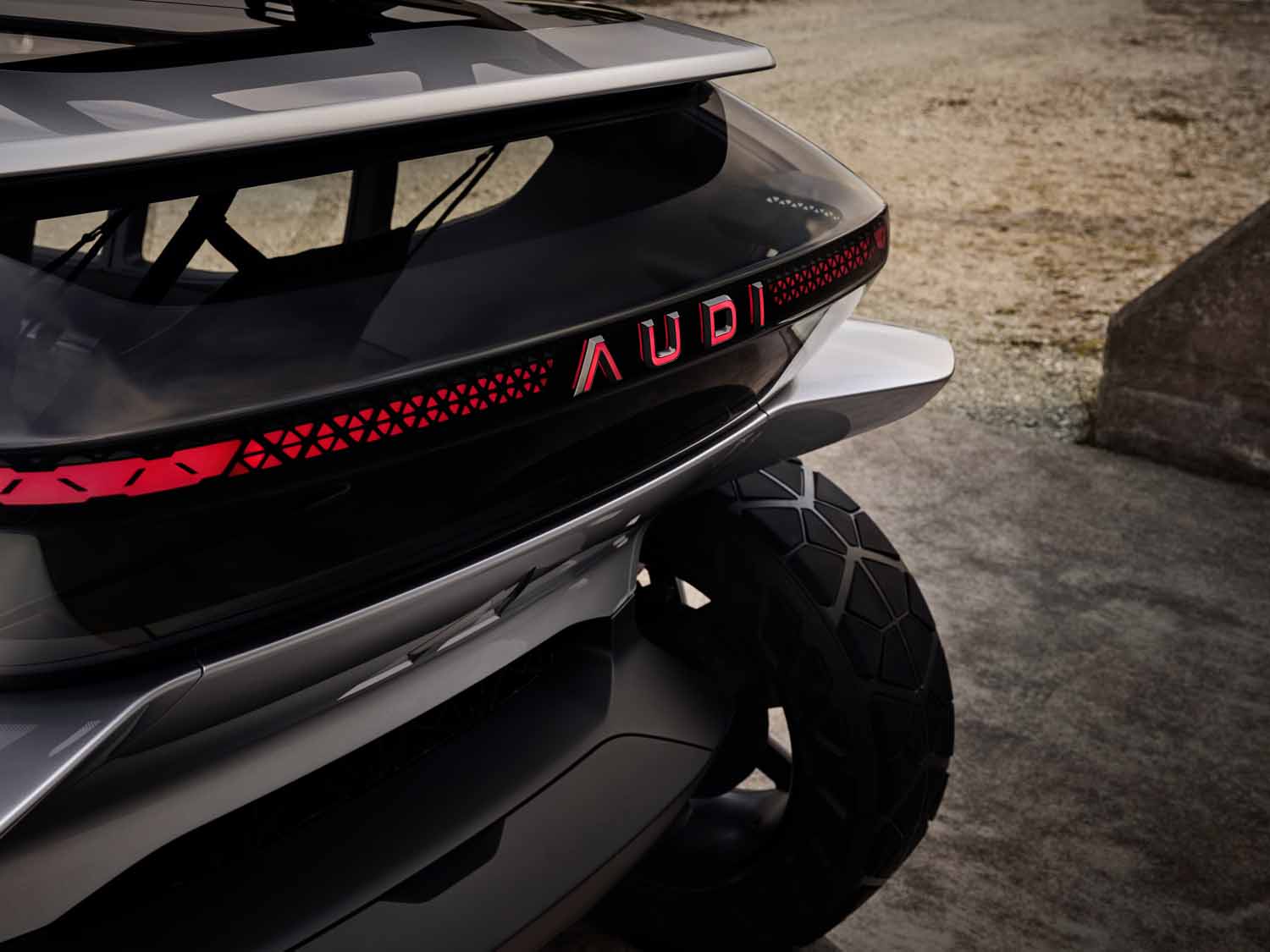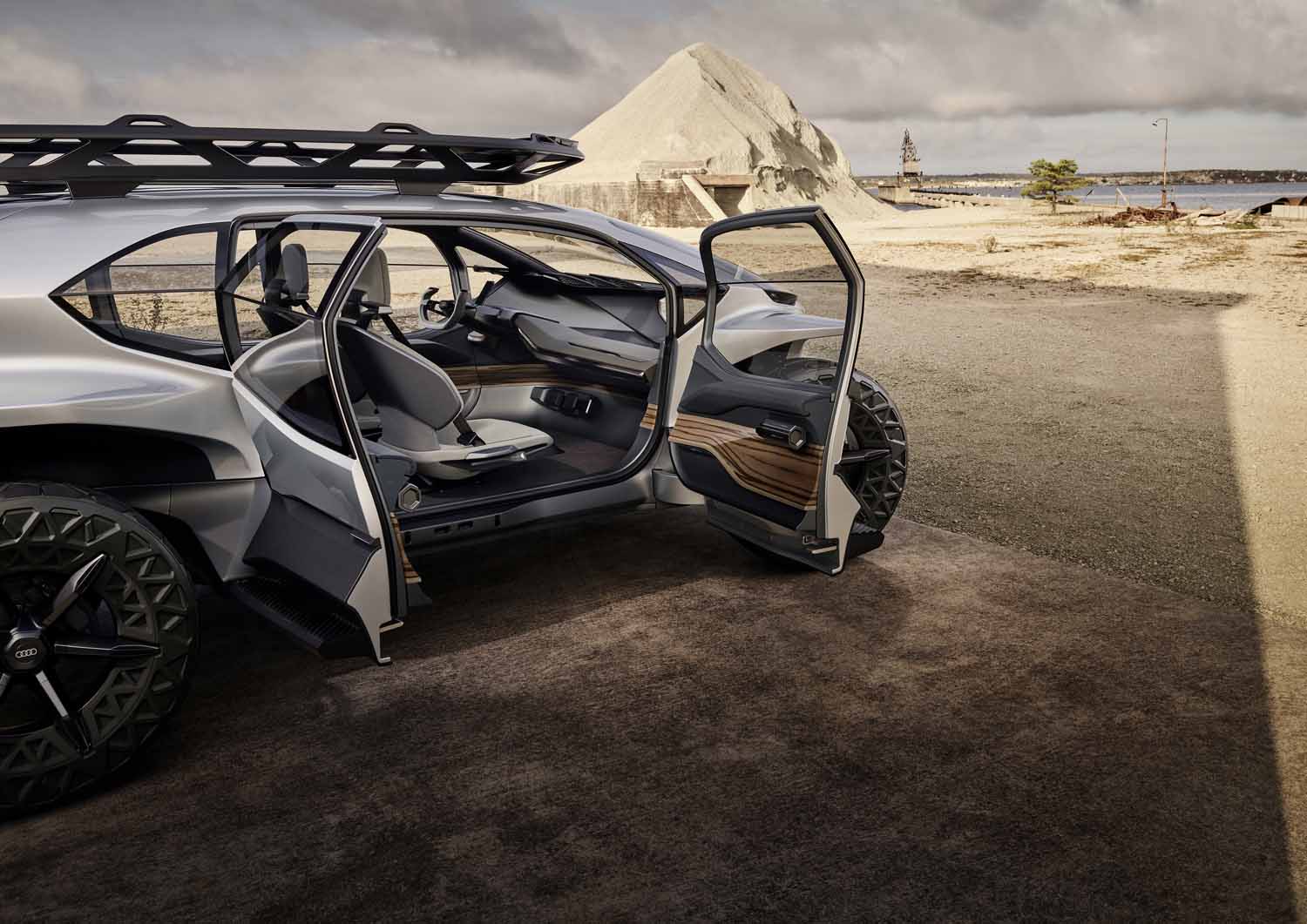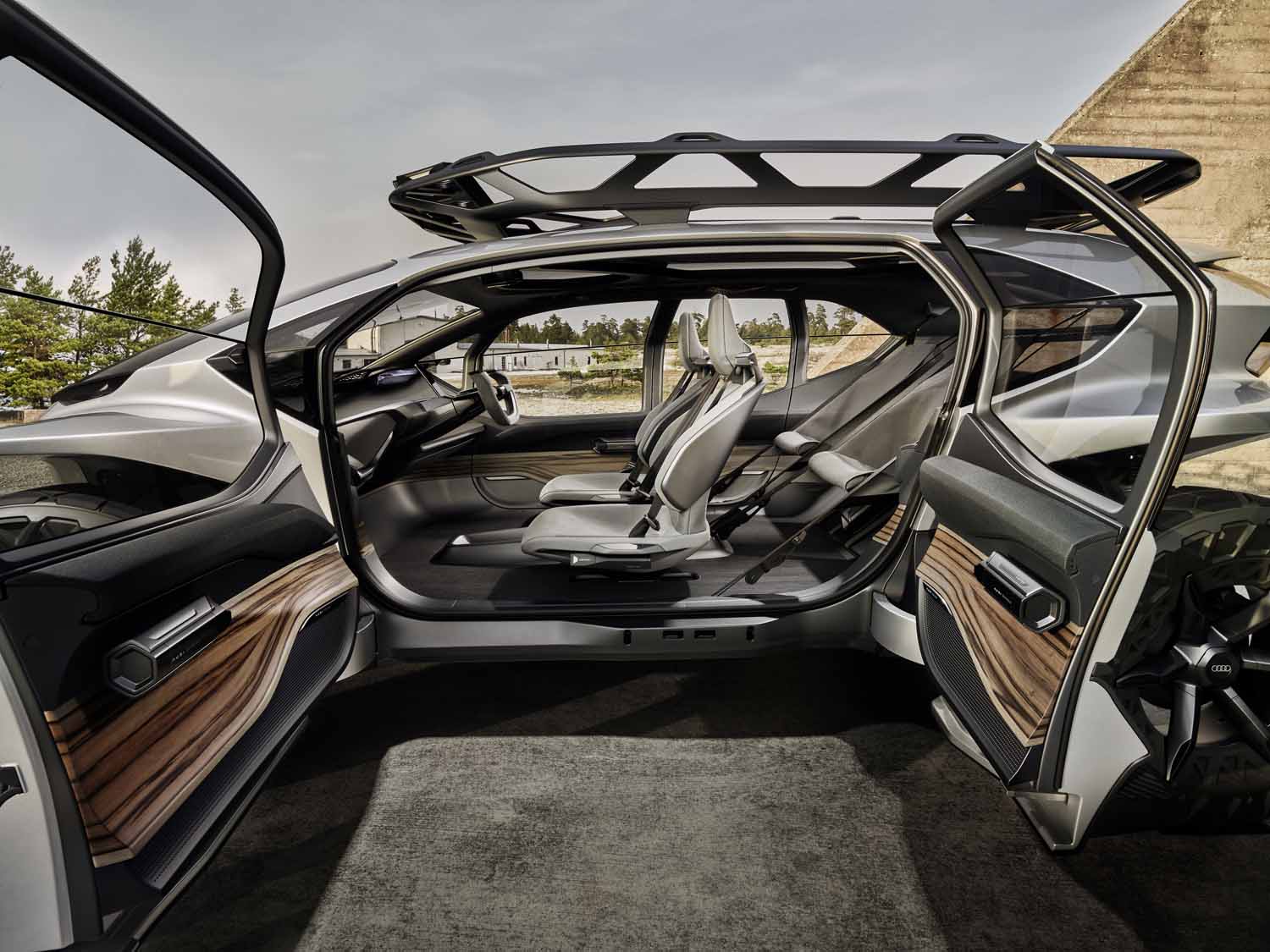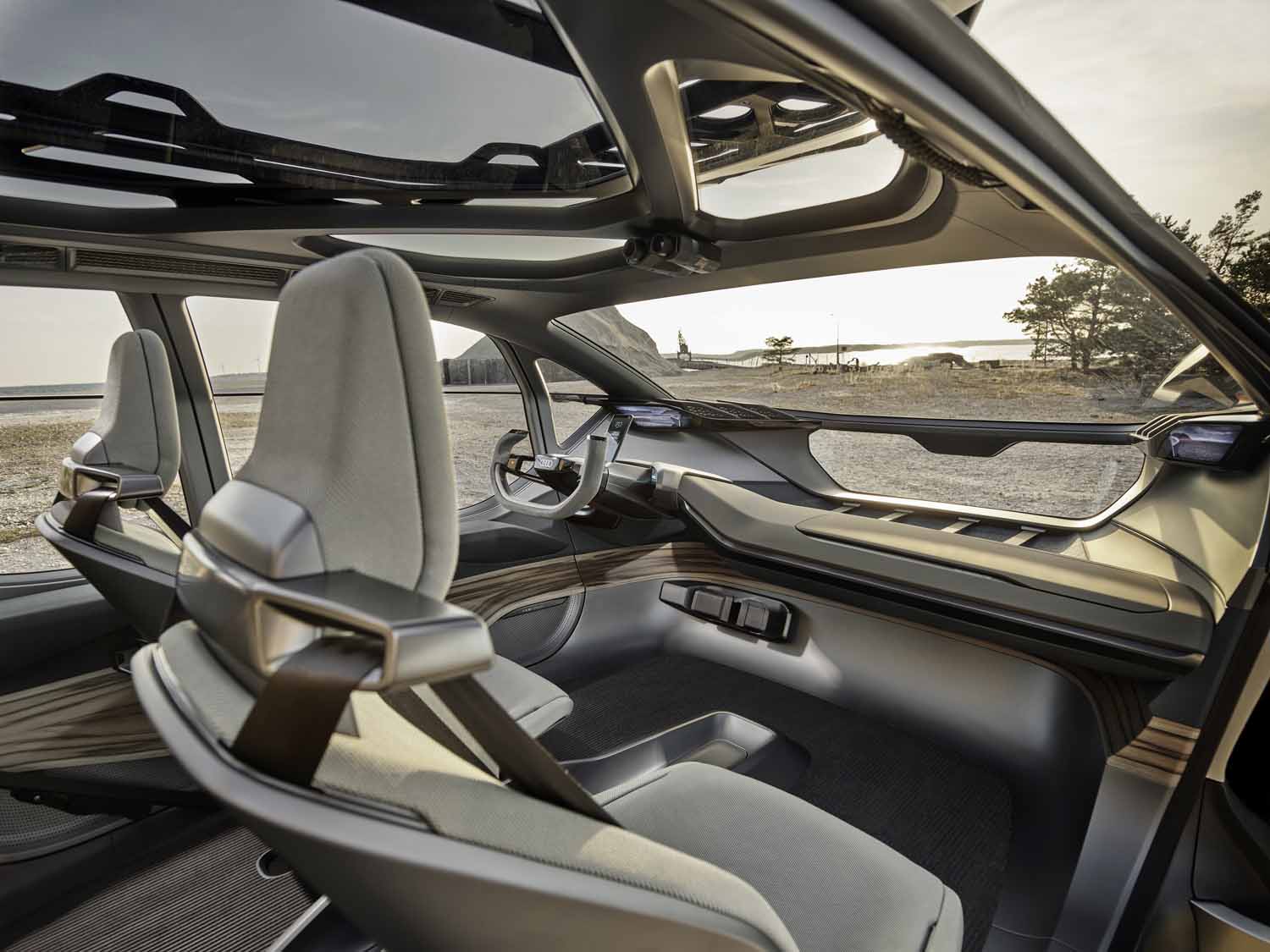Most autonomous concept cars are designed to remain on the pavement, whether it’s in cities or on highways. Audi is taking the technology off-road with a concept named AI:Trail, introduced during the 2019 Frankfurt Auto Show. The electric design study shows how adventurers could explore the great outdoors in a distant future.
The AI:Trail completes Audi’s four-strong range of autonomous concept car. It follows the Aicon, the AI:Me, and the AI:Race. “All of these concepts were designed with a specific use case in mind,” Marc Lichte, the company’s design boss, explained while introducing the Trail. It certainly looks the part. The wheels are pushed as far out as possible to reduce the approach and departure angles, and it can drive through a foot and a half of water thanks in part to 13.4 inches of ground clearance, and 22-inch wheels wrapped by massive, 33.5-inch tires.
Each wheel gets zapped into motion by an individual electric motor, a layout which represents a new evolution of Audi’s time-tested Quattro all-wheel-drive technology. The drivetrain’s total output checks in at 430 horsepower and 738 pound-feet of torque. Audi’s simulations show the AI:Trail has a 250-mile driving range on the pavement, or a 155-mile range on the trail. Top speed checks in at 81 mph, though you probably don’t want to reach it on the Rubicon Trail.
The cabin seats four, and Audi lowered the beltline to give them a nearly 360-degree view of the outside world. It’s packed with unusual tech features. For example, it has no instrument cluster; every function is controlled via a smartphone. There is also a roof-mounted drone, which can be dispatched to light up the trail ahead.
While production plans remain vague, Audi envisions a future in which it operates a fleet of cars inspired by the AI-badged concepts, and motorists can book them via an app, like they request an Uber. For example, they could request an AI:Me to commute in, and an AI:Trail to spend a weekend in the woods. The car would recognize its passengers, and it would already know how they like to sit, what they want to listen to, and where they wish to go.
“This offer is accessible, and easy to use via a simple app that connects the vehicle order, personal preferences of the user, and numerous options that can be used while on the road,” the company wrote in a statement. It’s this kind of service that the various subscription programs operated by automakers around the globe are paving the way for.
